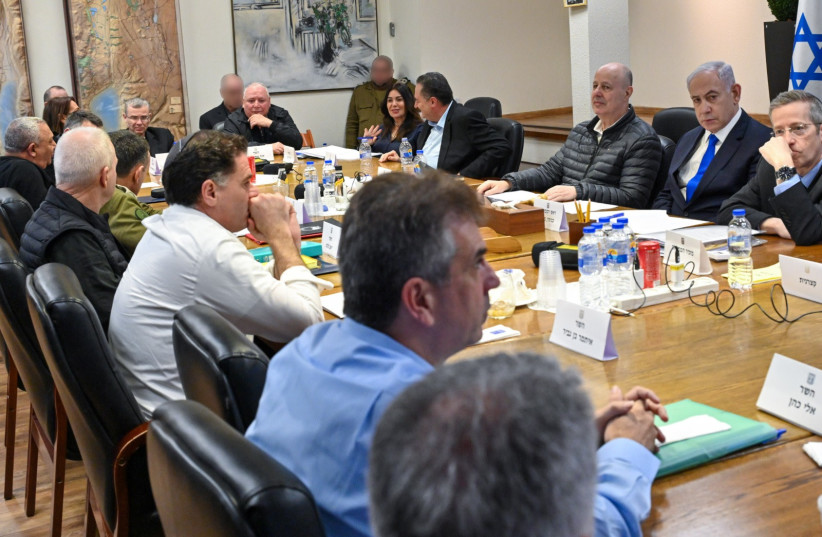Prime Minister Benjamin Netanyahu has approved a military operation for Rafah in southern Gaza that will also include the evacuation of civilians, his office announced on Friday after the war cabinet met in the afternoon.
The Rafah operation has been one of the levers Israel has used to pressure Hamas to make a deal for the return of the remaining 134 captives held in the enclave.
It is presumed that Israel would delay the military operation to allow a hostage deal to move forward.
KAN News reported that if a hostage deal fails to materialize, the IDF could launch a military operation in Rafah before the end of Ramadan.
Netanyahu has insisted that Israel must, in the end, carry out that operation so that it can destroy the Hamas battalions in that area, which is viewed as the terrorist group’s last stronghold.

The international community has opposed the move, fearing for the fate of more than 1.4 million Palestinians in the area of Rafah, many of whom fled there to escape bombing in northern Gaza.
The US has insisted that Israel must present a credible, realistic plan to protect civilians in Rafah, warning that failure to do so would be considered a redline.
Israel has promised to provide such a plan.
The US continues to demand a clear plan for the civilian population of Rafah
Speaking to reporters in Vienna on Friday, US Secretary of State Antony Blinken said that US President Joe Biden has been very clear about his position on this matter.
“Given the large number of civilians in Rafah – about 1.4 million, many of whom… have been displaced from other parts of Gaza – we have to see a clear and implementable plan, not only to get civilians out of harm’s way but also to make sure that, once out of harm’s way, they are appropriately cared for with shelter, with food, with medicine, [and] with clothing.”
"We have not yet seen such a plan” from Israel, he said.
World Health Organization Director-General Tedros Adhanom Ghebreyesus called on Israel not to enter Rafah.
“Further escalation of violence in this densely populated area would lead to many more deaths and suffering, especially with health facilities already overwhelmed,” he stated.
